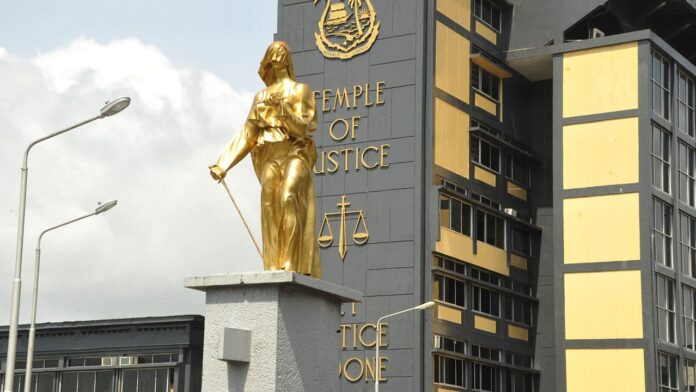MONROVIA, LIBERIA – Liberia’s deepening legislative rift, the bloc loyal to Speaker J. Fonati Koffa failed to achieve quorum once again during today’s session of the House of Representatives. With only 29 lawmakers present and one absent, Speaker Koffa’s bloc was unable to advance any agenda items. Meanwhile, the rival Majority bloc, numbering 43 members, met in the joint chambers, signaling its growing strength and intensifying its efforts to unseat the embattled Speaker.
During today’s proceedings, the Majority bloc issued its first summons, calling on Minister of Internal Affairs Francis Nyumalin to appear before the House next Tuesday at 10 a.m. Nyumalin will be questioned on the implementation of the Local Government Law, as part of a move initiated by Representative Ernest Manseah of Nimba District #4. Joining Nyumalin on the Majority’s summons list are Liberia Water and Sewer Corporation (LWSC) head Mo Ali and Minister of Transport Sirleaf Tyler.
The Majority bloc’s push to consolidate its authority is further highlighted by its recent decision to investigate six legislators from Speaker Koffa’s side. Representatives Frank Saah Foko, Marvin Cole, Luther Collins, Edward Flomo, and two others are to be questioned by the Majority bloc’s “committee of the whole” for allegedly obstructing legislative proceedings in the main chambers on October 22, 2024. It remains unclear whether these lawmakers will heed the Majority’s call, adding to the uncertainty that now characterizes Liberia’s legislative landscape.
Yesterday, the Supreme Court intervened in the escalating political crisis, convening a session led by Associate Justice Yamie Quiqui Gbeisay to address procedural concerns raised by Speaker Koffa’s legal team. Represented by former Associate Justice Kabineh Ja’neh and Cllr. Cyrenius Cephas, Speaker Koffa’s defense argued that the Majority bloc’s campaign to remove him has been fraught with procedural irregularities, undermining legislative norms and Koffa’s right to due process. They maintained that Koffa was not formally informed of any grievances, and therefore, the move to unseat him was unconstitutional.
In a direct query to the Majority bloc’s legal representative, Cllr. Varney Sherman, Justice Gbeisay probed whether any formal complaint had been filed against Speaker Koffa before initiating the push for his removal. Sherman asserted that the Majority bloc had sufficiently notified Koffa through its petition of signatures. However, Koffa’s counsel argued that a list of signatures alone does not constitute a formal complaint, spotlighting a critical gap in the procedural understanding between the factions.
Justice Gbeisay’s emphasis on procedural integrity reveals a judiciary keen on preserving the rule of law amid escalating political tensions. His demand for formal processes underlines the necessity for constitutional protocols that safeguard against arbitrary legislative decisions. He urged the Majority bloc to bring their grievances to the main legislative chamber and ensure that Speaker Koffa is granted the opportunity to respond through established legal channels.
The implications of this high-stakes showdown extend beyond Liberia’s House of Representatives. Justice Gbeisay’s intervention underscores the judiciary’s pivotal role in maintaining checks and balances, particularly in cases where internal legislative conflicts have profound ramifications for national governance. This case highlights the enduring importance of procedural due process, serving as a reminder that Liberia’s democratic institutions must uphold constitutional standards in even the most contentious circumstances.
Following Justice Gbeisay’s directive, Cllr. Sherman indicated that the Majority bloc would adhere to the legal path prescribed by the court. Nonetheless, Majority leader Representative Samuel Kogar announced a new session for today, November 5, without clarifying whether it would be held in the main or joint chambers. This ambiguity underscores the uncertainty clouding Liberia’s legislative proceedings, casting doubt on whether the Supreme Court’s directive will be enough to avert future challenges to Speaker Koffa’s leadership.
The Supreme Court’s emphasis on constitutional process may prove crucial in tempering political volatility. Justice Gbeisay’s insistence on legal compliance is a reminder of the importance of institutional fidelity in preserving the rule of law amidst a polarized political landscape.







